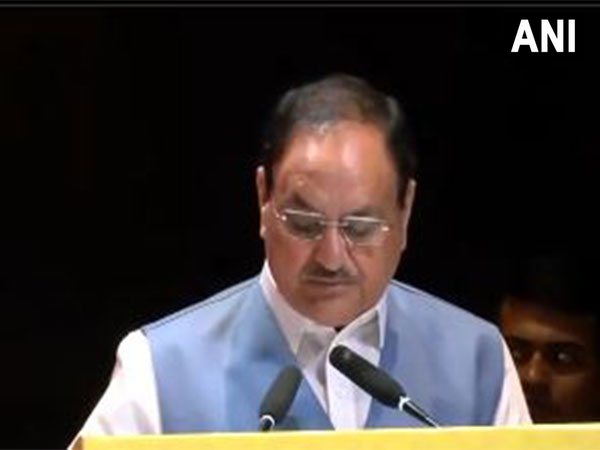Union Health Ministry Celebrates Milestones in 100 Days Program: A Leap Towards Atmanirbhar Bharat
Union Health Minister JP Nadda announced the successful 100 Days Program by the Department of Health Research. Key initiatives include pandemic preparedness, Med-Tech Mitra for innovators, the National One Health Mission, indigenous drug development, and comprehensive research and diagnostics enhancements.

- Country:
- India
Union Health Minister JP Nadda has declared the successful conclusion of the 100 Days Program initiated by the Department of Health Research (DHR) under the Union Health Ministry. Highlighting transformative strides in healthcare innovation, Nadda emphasized that these initiatives are pivotal for healthcare advancements, pandemic readiness, and the creation of indigenous medical solutions contributing to a healthier, more resilient, and self-reliant India.
A significant milestone within the past 100 days is the Med-Tech Mitra initiative, a joint collaboration between the Indian Council of Medical Research (ICMR) and the Central Drugs Standard Control Organization (CDSCO). This platform has engaged over 250 innovators, startups, and industry partners to navigate the complexities of regulation-compliant product development, clinical validation, and scaling processes.
The National One Health Mission (NOHM) has been another cornerstone of DHR's agenda, offering an integrated approach to address diseases at the confluence of human, animal, and environmental health. The creation of a National Network of BSL-3 Laboratories and the execution of mock drills, such as the H5N1 'Vishanu Yudh Abhyas,' illustrate India's burgeoning capacity for zoonotic disease and pandemic management, reinforcing long-term health security.
In partnership with the private sector, the DHR has also embarked on vaccine developments for avian flu, Kyasanur Forest Disease (KFD), and MPox, alongside the ongoing creation of NIPAH monoclonal antibodies. Collaborative efforts have produced comprehensive guidelines unifying the standards for Bio-Safety Level (BSL-3) labs.
Initiatives such as the Integrated Research and Diagnostic Laboratories (IRDLs) and the National Institute of Virology's Zonal laboratories mark significant advancements in tackling infectious diseases. Additionally, the Program for Development of Indigenous Drugs targets eight rare diseases, making life-saving therapies more accessible and affordable, bolstered by the 'First in the World' challenge supporting 50 groundbreaking biomedical innovations.
Moreover, the Centre for Evidence-Based Guidelines is set to standardize medical practices nationally, supported by Systematic Review Centres throughout the country. The new 'Research to Action' vertical aims to translate cutting-edge research into effective health policies, and substantial strides in research capacity building, including over 200 doctoral fellowships and support for women scientists, underline the commitment to advancing medical research in India.
Rajiv Bahl, Secretary of DHR and DG of ICMR, commended these initiatives as testament to the government's dedication to healthcare innovation and transformation, positioning India's healthcare system for future challenges.
(With inputs from agencies.)










